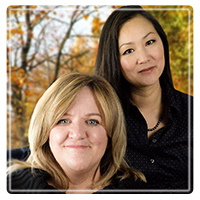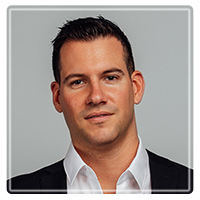
Eating Disorder Counsellor
Katherine Lennon, RP, C.C.C.
Registered Psychotherapist
In K9A 3P9 - Nearby to Peterborough.
I have worked with many people who deal with disordered eating and body image issues. Most have struggled for years to understand why they Eat the way they do, usually this is to find a way to control something in their lives because other aspects are very stressful. We will work closely together to uncover what is overwhelming you in your life. You will learn how to manage your impulses, understand your thoughts, feelings, and actions, and make healthier choices for yourself.

Eating Disorder Counsellor
Yasmin Goldie, RP, RN
Registered Psychotherapist, Registered Nurse
In L1C 5E2 - Nearby to Peterborough.
Emotional eating can stem from social expectations, family of origin rituals and gatherings, and negative self-talk. Emotional eating can lead to weight gain and health concerns. I use CBT, DBT and ACT to help clients learn to recognize emotional triggers that lead to eating behaviors when not physically hungry. I also help clients develop techniques to mindfully eat, resist temptation and learn to recognize when emotions are pulling at your puppet strings.

Eating Disorder Counselor
Adrienne Richardson, PhD MsED RP CSAT/CPTT SEP-A OCT
Registered Psychotherapist
Available for Online Therapy
I work with your negative body image, from the inside out. "The negative image is understood as a dissociated and shame-based “part” of the personality in need of understanding and compassion, achieved via mindful awareness, “parts” dialogue and trauma processing. Our first step will be to create a healthy separation between the "observing" or aware Self and the part(s) absorbed in the eating disorder via mindful awareness. Once this separation between the "whole" self and part of self is established, the Gestalt polarity tradition (empty chairs) is utilized to develop understanding of the shame-based part. This leads to developing more love and compassion for yourself. You are enough!

Eating Disorder Counselor
Steve Rose, PhD
Addiction Counsellor
Available for Online Therapy
I help clients overcome addictive relationships with food. Like all addictions, the behavior is the tip of the iceberg, used to cope with underlying thoughts and emotions. Through collaborative conversations, clients gain insight into underlying concerns, gaining coping skills to more effectively navigate these issues. I draw on Acceptance and Commitment Therapy (ACT) and Motivational Interviewing (MI), helping clients achieve a sense of freedom and control over their lives, leading to long-term change.

Eating Disorder Counselor
Ryta Marie Peschka, RP
Registered Psychotherapist
Available for Online Therapy
While I do not offer support for eating disorders, at Psychotherapy Collective, we have other therapists who are well positioned to support you. Eating disorders are not really about food. They involve complex emotional issues that have significant impact on ones physical, emotional and social health. If you are preoccupied with your weight, focused on body image, size, or shape, compelled to perform specific rituals around food, obsessive about food, or deem foods as “safe” or “unsafe” to eat you may be engaging in disordered eating. Schedule a free 15-minute consultation with a member of our team today https://www.psychotherapycollective.ca/our-team

Eating Disorder Counsellor
Jessica Stephens, OT(reg.)Ont., MA, RP
Registered Psychotherapist, OT, Clinical Supervision
In K0K 1S0 - Nearby to Peterborough.
Disordered consumption/elimination behaviour ranges from starvation, bingeing, purging and eating restriction to newer disorders like diabulimia and orthorexia. Sometimes numbing, existential ambivalence, shame or dread of weight gain accompany an eating disorder. Modern Western culture perpetuates vanity which when combined with perfectionist and overly rigid to abusive early life experience may worsen a variety of eating/elimination imbalances. Clients can often be helped with a comprehensive approaches like DBT (including radical acceptance practice), CBT(cognitive reframing and experiments in balanced self-care ), EFT, hypnosis, and spiritual (eg. 12-step, mindfulness) practices.

Eating Disorder Counselor
Bojena Kelmendi, M.S.W. R.S.W.
Registered Social Worker, Therapist
Available for Online Therapy
Eating disorder can overshadow your life, stealing the joy and self-respect. I have worked with many who struggled with eating disorders and disordered eating and yes, it is possible to fight it and move beyond it. In the therapy with me you become aware of your strengths, your limitations and areas that need strengthening. You discover you are not alone and let the guilt and shame sweep away and become stronger. You learn how to create healthier boundaries, recognize triggers and become emotionally and mentally stronger.

Eating Disorder Counselor
Tony Miller, RP
Registered Psychotherapist
Available for Online Therapy
For many Christians it can be beneficial to their success in therapy to have a therapist that holds an understanding and respect for their religious and spiritual beliefs. While I do not offer Christian counseling services, at our clinic Psychotherapy Collective, one of our therapists Sarah works with Christian clients to combine evidence based psychotherapeutic techniques with piety, humility, forgiveness, faith development, spiritual development, and community. Schedule a free 15-minute consultation with Sarah to see if she is a good fit for your journey https://www.psychotherapycollective.ca/our-team/therapist/sarah-glinski

Eating Disorder Counsellor
Jeff Packer, MSW, RSW, RP
Registered Masters Level Social Work Counsellor & Psychotherapist
In L1G 2V5 - Nearby to Peterborough.
Disordered eating patterns are common in north America and, of course, they are still more prevalent among teen females and women than among teen males and men. Numerous factors contribute to the development and reoccurance of disordered eating patterns, including, negative body image, low self-esteem, stress and relationship struggles, intellectual and cognitive reasoning and media and social learning. Combining narrative, cognitive-behavioural individual and family therapy (in a collaborative teamwork approach among family, therapist and other healthcare providers) is the most effective strategy to reduce health risks through healthier relationship, exercise and eating thoughts and habits
